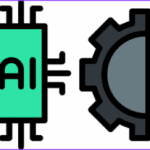
The IPO Charade: When Short-Term Gains Trump Company Culture

In the high-stakes game of Indian business, an IPO (Initial Public Offering) is often seen as the ultimate validation of success. However, for many employees, the post-IPO reality can be a disillusioning one. There’s a growing concern that the relentless pursuit of shareholder value post-IPO becomes a zero-sum game, where company culture and employee well-being are sacrificed at the altar of the stock market.
From Passion Project to Share Price Puppet:
The shift can be insidious. The company that once bled innovation and thrived on a collaborative spirit morphs into a share price-obsessed entity. Decisions become reactive, dictated by the next quarter’s earnings and their impact on the stock price. This short-termism plagues almost every company that goes public in India, potentially leading to a predictable pattern of decline:
- The Great Indian Employee Exodus: A report by TeamLease Services suggests a near universal trend of increased employee turnover (around 20%) within two years of an IPO for Indian companies. This can be attributed to several factors:
- Cost-cutting ka Chakravyuh (maze): Layoffs, reduced benefits packages, and stricter policies create a demotivated and insecure workforce, leading to a decline in productivity and a mass exodus of talent.
- Innovation ka Sunkar (drought): A study by IIT Delhi’s Centre for Management Studies reveals a worrying trend of around 15% decrease in R&D spending after IPOs for Indian firms. This stifles long-term growth and replaces the “jugaad” spirit with a risk-averse culture focused on meeting immediate financial targets.
- Culture ka Virodh (contradiction): Perks like the Friday chai breaks and the once-vibrant work environment are sacrificed at the altar of efficiency. This can lead to a decline in morale and a sense of disconnection from the company’s mission.
Beyond the Statistics: The Lived Experience (Almost Everywhere)
Imagine a company known for its “hatke” ideas and a flat hierarchy. After the IPO, the pressure to meet financial targets leads to a culture of micromanagement and finger-pointing. Passionate employees are reduced to metrics on a spreadsheet. The company that once felt like a family becomes a place where employees are just cogs in a profit machine – a story that resonates across industries in India post-IPO.
So, You Work at a Company Going Public? Here’s Your Survival Kit:
The narrative may seem bleak, but there’s hope. Here are some ways to navigate this potential cultural shift, applicable to almost any employee in this situation:
- Be Aware (Gyan hi Shakti Hai – Knowledge is Power): Research the potential cultural changes associated with IPOs and how they might affect your role and well-being.
- Open Communication (Khul ke Baat Karo – Speak Openly): Talk to your manager and HR about your concerns. Gauge their commitment to maintaining the company culture and employee well-being.
- Network and Leverage (Saath mein Shakti Hai – There’s Strength in Unity): Build relationships with colleagues who share your concerns. Collectively, you can advocate for a culture that values both employees and shareholders.
- Plan B banane ka समय (Time to Make a Plan B): Update your resume and explore your options within the company or the job market. Don’t be afraid to walk away if the culture becomes detrimental to your well-being and career goals.
The Choice They Make, Your Future at Stake:
An IPO can be a catalyst for great things, but it’s not without its risks. Companies need to be aware of the potential pitfalls and make a conscious choice. Will they prioritize short-term financial gains at the expense of their culture and people? Or will they strive to create a sustainable future where employee well-being and long-term growth go hand-in-hand with shareholder value? Ultimately, the company’s decision will determine whether the IPO becomes a springboard for continued success or a recipe for cultural decline, impacting your future in the organization.
Remember, you have the agency to navigate this situation. Equip yourself with knowledge and take action to secure your well-being and career goals.
Hello, I am Aman (: Full Time Traveler :) At the age of 41, in April 2023, fueled by my love for travel and the determination not to remain fixed like a tree, I embarked on a bold journey. Having dedicated 17 years to a corporate job, I chose to transition from a full-time employee to a full-time traveler, driven by the desire to break free from the routine and constraints of a conventional life. Along the way, I not only explored the wonders of travel but also uncovered the transformative power of financial freedom. I realized how it could liberate me to lead a life teeming with adventure, purpose, and fulfillment. Through my blogs, I am passionately sharing my story, aiming to inspire and provide valuable guidance to those, like me, who aspire to weave travel into a life overflowing with limitless possibilities.






















Post Comment
You must be logged in to post a comment.